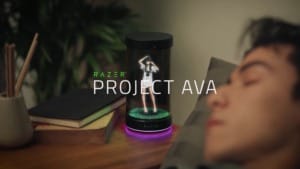Nokia and ST Engineering to enhance Bangkok’s metro communications network
Nokia and ST Engineering to deploy a high-capacity IP/MPLS communications network for Bangkok’s new Orange Line, boosting safety and efficiency.

Nokia has announced a collaboration with ST Engineering and local systems integrator First One Systems to deploy a high-capacity Internet Protocol/Multi-Protocol Label Switching (IP/MPLS) communications network for Bangkok Expressway and Metro Public Company Limited (BEM). The project, designed for the new Mass Rapid Transit (MRT) Orange Line, aims to improve railway safety, reliability, and efficiency, with completion expected by 2030.
The new Backbone Transmission Network (BTN) will form the foundation of the Orange Line’s communications infrastructure, enabling BEM to operate a secure and resilient system across both underground and elevated tracks. The network will support a range of critical and non-critical railway applications, including CCTV surveillance, radio communication, public announcements, passenger information displays, and Supervisory Control and Data Acquisition (SCADA) systems.
Enabling safer and smarter rail transport
The 35.9-kilometre Orange Line will connect Bangkok’s eastern and western regions, marking a major step in the city’s transport modernisation. As global railway systems undergo digital transformation, Bangkok’s new line will benefit from a future-ready communications backbone that integrates automation, safety, and service reliability.
“We are honoured to be part of this landmark project alongside Nokia and ST Engineering, contributing our local expertise and strong integration capabilities to support BEM’s vision for safer and smarter rail transport in Bangkok,” said Terdsak Kijjatikankun, Chief Executive Officer of First One Systems. “Our deep understanding of the local landscape, combined with Nokia’s proven technology and ST Engineering’s system integration excellence, ensures that this mission-critical communication system will meet the highest international standards.”
Delivering advanced network performance
Under the agreement, Nokia will implement two Backbone Transmission Networks operating at 10G and 40G speeds to handle high volumes of voice, data, and video traffic between stations and the Operations Control Centre. The solution will incorporate Nokia’s 7250 Interconnect Router, 7210 Service Access System, and its advanced service management platform. Together, these will help BEM simplify network operations and maintenance, enhance security, and gain real-time visibility into system performance.
“Complex and large-scale railway projects require not just deep technical expertise but also seamless collaboration across partners,” said Stuart Hendry, Vice President of Enterprise Sales for Network Infrastructure at Nokia Asia Pacific. “Together with ST Engineering and First One Systems, we demonstrated engineering excellence and solution leadership, giving BEM the confidence to move forward with our solution for this prestigious initiative. Our strong track record and learnings from delivering similar railway projects globally enable us to anticipate challenges and deliver a world-class solution.”
The collaboration underlines Nokia’s continued focus on developing intelligent, secure, and scalable communication solutions for mission-critical industries such as transport. With this project, BEM aims to achieve safer, more efficient, and more connected metro operations across Bangkok.
















